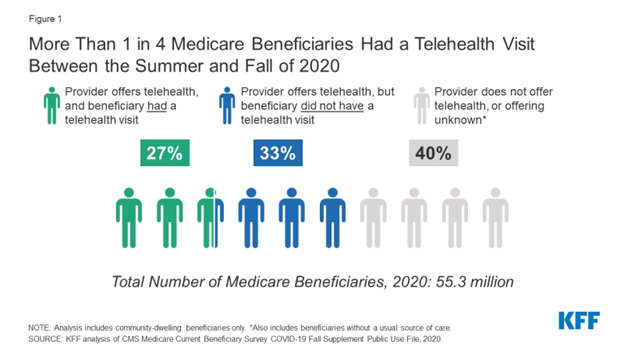|
|
Hearing Exposes Greed of Drug Corporation AbbVie |
|
According to a study released Tuesday by the U.S. House Oversight and Reform Committee, the pharmaceutical corporation AbbVie has raised prices 470% in the United States for its widely used drugs Humira and Imbruvica over the past two decades. The price increases boosted the corporation's revenue by billions of dollars and AbbVie’s executives received hefty bonuses during that time.
The committee examined more than 170,000 internal documents and conversations connected to the drugs from the last 18 years. Chairwoman Carolyn Maloney (NY) issued a subpoena for the documents after AbbVie declined to cooperate with the Committee's request.
Humira, used to treat rheumatoid arthritis, other autoimmune diseases and gastrointestinal conditions such as Crohn’s, was released in 2003 when the company was Abbott Laboratories. An annual supply of the drug costs about $77,000, the report said. |
|
|
AbbVie CEO Richard Gonzalez |
|
Meanwhile AbbVie, working with Janssen Biotech, has also increased the price of Imbruvica, a drug used to treat mantle cell lymphoma and other cancers, by 82 percent since it launched in 2013. That year, for a patient taking three pills per day, the drug was priced at $99,776 annually. |
|
Today, it’s priced at $181,529. For patients taking four pills each day, it costs more than $242,000.
The list price for Humira outside the U.S. is much lower. In 2015, the cost for a 40-milligram syringe of the drug was $1,727 here, while the price range was between about $400 and $970 in Canada, the United Kingdom, Germany, Japan and South Korea.
In addition to increasing the cost of the drug in the U.S., the Oversight Committee found that AbbVie “engaged in a series of anticompetitive strategies to block lower-priced biosimilar versions of Humira from entering the U.S. market.”
"We knew that the pharmaceutical corporations are raking in huge profits. But the level of greed displayed by AbbVie at the House hearing this week was still shocking," said Robert Roach, Jr., President of the Alliance. "Congress needs to take action to control the exponentially increasing prices of drugs by passing H.R. 3, the Lower Drug Costs Now Act.” |
|
Florida Alliance Urges Congress to Lower Drug Prices and End Corporate Tax Breaks |
|
Rep. Darren Soto (FL) joined the Florida Alliance, Lower Drug Prices Now national experts and patients for a news conference Monday to discuss federal reforms that could lower drug prices for millions of Floridians. The event was one of several events across the country that took place on Tax Day, which was later than usual this year due to the coronavirus.
Rep. Soto is a cosponsor of the recently reintroduced Lower Drug Costs Now Act, which allows negotiated drug prices in Medicare and extends those prices to people with private insurance. The bill would cap out-of-pocket costs for seniors and ensure that Americans no longer pay three to four times more for medicines than people in other countries.
Advocates stressed that drug corporations benefit from tax breaks and loopholes while at the same raising prices on hundreds of prescription medicines developed with taxpayer money.
Individual patients told personal stories about how they are affected by prescription drug price-gouging. Florida Alliance member Janice Poirier, who is retired and diabetic, was one of those who discussed her frustrating predicament. She said affording her insulin is a struggle.
“You want to charge me $863 for something I have to have to keep me on this planet, knowing full well that I don’t have that,” she said.
She added that the uncertainty of not knowing how much she’ll have to pay at any given time only adds to her stress.
Barbara DeVane, Recording Secretary for the Florida Alliance, also spoke at the Florida event as did Margarida Jorge, Campaign Director of Lower Drug Prices Now. |
|
Members of Congress Suggest Expanding Medicare Telehealth Options |
|
Early on in the pandemic, the federal government expanded telehealth services covered under traditional Medicare on a temporary, emergency basis. Before, only patients who lived in rural areas could access telehealth options from certain providers and under certain conditions. More than one in four beneficiaries has had a telehealth service since March 2020, and government officials are considering whether to make the pandemic expansions permanent.
Several policymakers have introduced bills that would permanently expand the Medicare telehealth benefit. They seek to keep in place the same level of telehealthcare benefits for all beneficiaries that emerged during the pandemic. |
|
|
“We are pleased that telehealth provides Americans with an opportunity to meet with their doctors in a new — and easier — way for some,” said Joseph Peters, Jr., Secretary-Treasurer of the Alliance. “We need to ensure that telehealth is part of the solution to expanding medical access, but it cannot be the only solution. In-person medical services are still extremely important.” |
|
KHN: As Pandemic Eases, Many Seniors Have Lost Strength, May Need Rehabilitative Services by Judith Graham, Kaiser Health News |
|
Ronald Lindquist, 87, has been active all his life. So, he wasn’t prepared for what happened when he stopped going out during the coronavirus pandemic and spent most of his time, inactive, at home.
“I found it hard to get up and get out of bed,” said Lindquist, who lives with his wife of 67 years in Palm Springs, California. “I just wanted to lay around. I lost my desire to do things.”
Physically, Lindquist noticed that getting up out of a chair was difficult, as was getting into and out of his car. “I was praying ‘Lord, give me some strength.’ I kind of felt, I’m on my way out — I’m not going to make it,” he admitted.
One little-discussed, long-term toll of the pandemic: Large numbers of older adults have become physically and cognitively debilitated and less able to care for themselves during 15 months of sheltering in place.
No large-scale studies have documented the extent of this phenomenon. But physicians, physical therapists and health plan leaders said the prospect of increased impairment and frailty in the older population is a growing concern.
“Anyone who cares for older adults has seen a significant decline in functioning as people have been less active,” said Dr. Jonathan Bean, an expert in geriatric rehabilitation and director of the New England Geriatric Research, Education and Clinical Center at the Veterans Affairs Boston Healthcare System.
|
|
Thanks for reading. Every day, we're fighting to lower prescription drug prices and protect retirees' earned benefits and health care. But we can't do it without your help. Please support our work by donating below. |
|
|
|
|
Alliance for Retired Americans | 815 16th Street, NW | Washington, DC 20006 | www.retiredamericans.org



